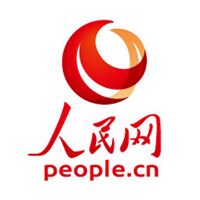Original title: What is the change of medical insurance benefits (policy interpretation · Q&A)
The reform of medical insurance payment has been carried out in most parts of the country, and some people are worried about the changes in medical insurance treatment. How to change the payment method of medical insurance? What is the impact on the insured? Around the concerns of the masses, the relevant person in charge of the National Health Insurance Bureau gave answers.
The purpose of payment reform is not simply to "control fees"
Q: Some people say that the reform of the payment method of medical insurance is because the medical insurance fund has run out of money. It is necessary to control expenses. Is there any basis for this statement?
Answer: Medical insurance payment is a specific way for medical insurance agencies to pay fees to medical institutions, including payment by project, payment by disease type, payment by bed day, etc. Different ways have different guiding effects on clinical diagnosis and treatment behavior. China has launched the pilot project of DRG (by disease group) and DIP (by disease score) payment methods. By the end of last year, more than 90% of the regions have carried out the reform of DRG/DIP payment methods. After the reform, the proportion of inpatient medical insurance fund paid by project in the reform area has dropped to about 1/4.
It should be noted that the purpose of the reform of payment mode is not simply to "control fees", but to guide medical institutions to focus on clinical needs, adopt appropriate technologies to treat patients and make reasonable diagnosis and treatment, avoid large prescriptions and excessive inspections, and better protect the rights and interests of insured personnel. After the reform, the payment standard will be timely raised with the socio-economic development and price level changes. Every year, the expenditure of the medical insurance fund maintains a growth trend and is higher than the growth of GDP and prices.
There has never been any restrictive regulation such as "no more than 15 days for a single hospitalization"
Q: In recent years, in some areas, patients were asked to leave the hospital after two weeks of hospitalization and then re admitted. It was said that after the reform of the payment method, it was stipulated that "a single hospitalization should not exceed 15 days". What's going on here?
A: The national medical insurance department has never issued restrictions such as "no more than 15 days for a single hospitalization". In 2022, the National Health Insurance Bureau also issued the Notice on Overall Screening and Cancellation of Unreasonable Restrictions on Medical Insurance, requiring medical insurance departments across the country to thoroughly investigate unreasonable restrictions on medical institutions, and the problems have been cleared up.
The situation of "single hospitalization does not exceed 15 days" may be that some medical institutions set extensive management measures in order to complete the assessment indicators such as "average length of stay" and "average cost per time". We firmly oppose and welcome the public to report the situation of changing the "average" of the medical insurance payment standard to "limit" and requiring patients to leave the hospital, transfer to another hospital or be hospitalized at their own expense for the reason of "the medical insurance limit has reached", and will seriously deal with it.
Qualified new drugs and technologies can be settled according to the actual expenses
Q: Under the pay by disease model, will medical institutions create cost pressure by purchasing new equipment or using new drugs with high prices for patients? Will the performance income of medical workers be affected if they "spend too much" on new drugs and technologies in the process of visiting?
A: It is not the original intention of payment reform that some medical institutions in some regions have such problems. On the contrary, in order to support the application of new clinical technologies and ensure that seriously ill patients receive adequate treatment, relevant rules have also been introduced in the reform of payment methods. For example, eligible new drugs and new technologies can not be included in the "exception payment" rule of disease payment standards, and the "special case discussion" rule of severe cases that are significantly higher than the average cost of disease types can be settled according to the actual costs, Please rest assured that the majority of insured persons, medical institutions and medical staff.
The medical problems are very complicated, and the technical progress in the medical field is also very fast. The medical insurance payment policy must not match the medical practice and fall behind the clinical development. To this end, the National Health Insurance Bureau is establishing an opinion collection mechanism and DRG/DIP for medical institutions and medical personnel The grouping rule adjustment mechanism is based on the opinions and suggestions put forward by medical personnel and the data of objectively incurred medical expenses to dynamically and regularly adjust and improve the grouping, regularly update the optimized version, fully respond to the demands of medical institutions, and ensure the scientificity and rationality of the medical insurance payment method.
(Editor in charge: Jiang Weihang, Liu Qing)
Share to let more people see


































